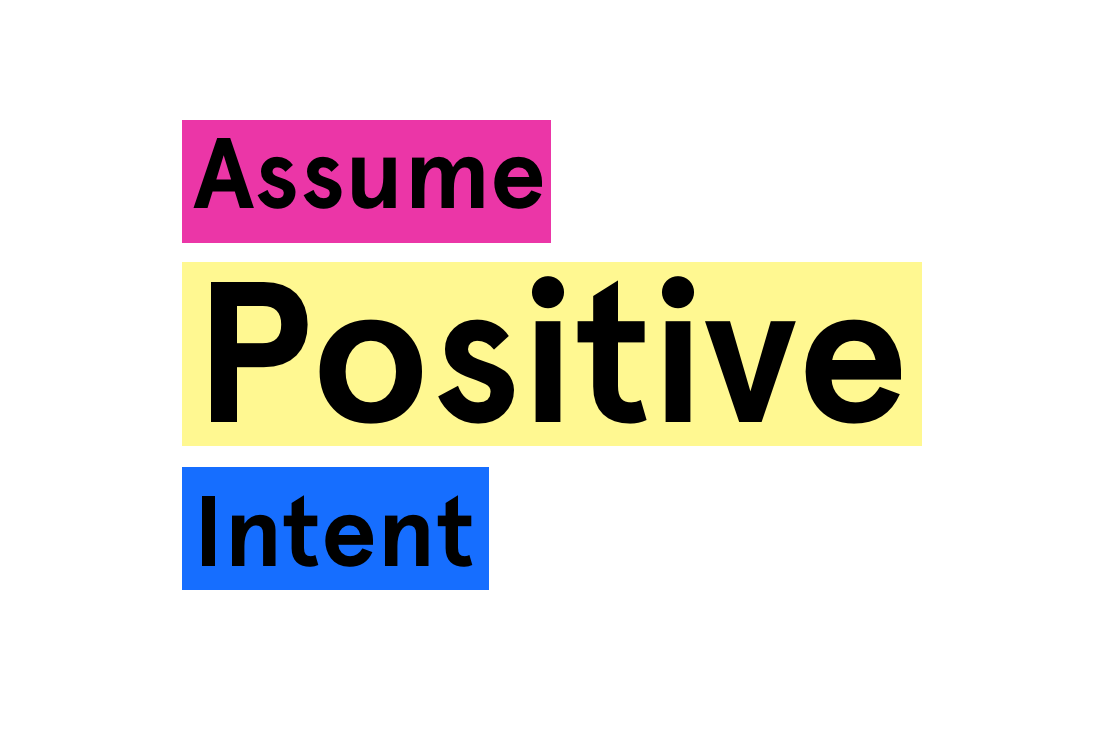“When listening to people, interpret their words in a generous way. You will occasionally get burned and mistreated by always assuming the best in others, but it is a far better way to live than the opposite.”
– James Clear 2022
I’ve realized that when I assume positive intent, I am not only giving people the benefit of the doubt, I am giving myself the chance to learn the details of the situation. Assuming positive intent requires me to be curious about the reasoning behind people’s actions and their choices.
I should probably point out that assuming positive intent is different from when people say “oh, he means well,” which is usually just a way to excuse bad behavior. Instead, in assuming positive intent, we make a conscious decision to see things through someone else’s eye. We slow down and remind ourselves of the many reasons why someone might act a certain way — maybe the other person is going through a hard time, had a rough day, or was stuck in traffic, or is sleep deprived, or <fill in that blank with one of a million different reasons>. Instead of making a judgment about that person, we empathize by assuming the best.
Not surprisingly, when you empathize, a bond of trust is developed – and that’s where the magic happens.
When you assume positive intent, you let others know you have confidence in them; most people will go to great lengths for someone who believes in them. They’re more willing to collaborate, to problem-solve, to take healthy risks/ try something new, and to persevere — all because you’ve planted the seeds of confidence and made a positive investment in the relationship.
I’m convinced that’s a win-win for every relationship, including manager/team, teacher/student, and parent/child.
